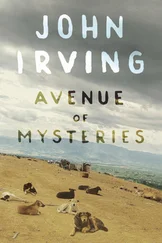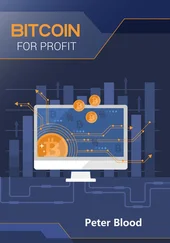“Boudewijn Stol,” he said, and a tanned hand shot across the table. Aaron shook it, a sturdy, dry grip. He noticed Stol’s improbably tight curls, which were combed back with something greasy, Brylcreem maybe; after a few inches the graying coif turned wavy, distinguished, classic, exposing his high forehead. The man sat straight up in his white dinner jacket with his stumpy Carthaginian chin thrust forward: at once, all the black tuxedos in the banquet hall fell flat. Even before Aaron realized who this Boudewijn Stol was, he already hated him.
“I’m a colleague of Etienne’s,” Stol said to Joni, apparently in response to a just-asked question. “His boss, actually. At McKinsey Netherlands.”
Aaron nearly choked when he heard those words, Joni shifted in her chair, her heels scraped across the parquet floor. He glanced around and noticed that everything in this fairy-tale gala hall zoomed into sharper focus: the fifty-plus place settings, the clatter of countless knives and forks, the glistening platters, the shimmering dresses and glittering jewelry, the chatter emitting from dozens of mouths, the swirl of moving eyebrows, cheekbones, corsages — all at once. “His team leader?” he heard Joni ask. Quit showing off, he thought, and stared at his plate. Next to him sat a man with a mustacheless beard, whose sultry B.O. prickled his nose and whose whiskers scraped over the collar of his shirt like a dish-scrubber.
“Aha,” said Stol, “so the young lady is in the know. No, I’m not his team leader. I’m the managing partner in Amsterdam. Or franchise holder, whatever you want to call it.”
“How about ‘head honcho,’ ” Joni suggested. “Head Honcho of McKinsey Netherlands.”
“Don’t spread it around,” said Stol.
An hour ago when they sat watching Enschede burn, nothing had happened to him. Now suddenly everything was happening to him: bad things. Liters of blood were pumped with elephantine force into his head; his back, his hands, buttocks, face, and feet spontaneously ignited like matches. Heat radiated off him, even the lace-collared pursed and powdered mugs of the oil portraits in their gilded frames began to perspire. Head Honcho McKinsey, he thought, Jesus H. Christ, and as though someone were now un focusing the lens, the whole damn Sissi palace faded into a blotchy blur. He focused on Stol’s powerful neck, where a muscle twitched; the guy had a neck like an oak, a centuries-old trunk whose roots burrowed into virile, rounded shoulders under the white fabric of his dinner jacket. There was undoubtedly a fitness room in the head-office basement where he pumped his daily iron; this was the kind of guy who lifted sixty kilos but left the bench press at 120, just to knock the next monkey’s morale down a notch. Aaron rubbed his eyes with both hands. “My contacts,” he mumbled. A ropy bite of veal that had absorbed all his saliva had lodged itself under his tongue. He removed a contact lens from his eye and studied the plastic disc as though seeing it for the first time.
“So how many consultants do you manage, Mr. Stol?” he heard Joni ask.
“Mr. Stol doesn’t manage anything,” he said. “ Boudewijn manages an office of about 150.”
Her laugh was full of excited admiration.
“But,” continued the smug voice, “as I’m sure you know, consultants are independent-minded. We feel quite confident, for instance, sending our little friend Vaessen here out to play. Once a week I read him the riot act, that’s more than enough.”
And again that crystalline laugh Joni reserved for special occasions, a laugh that began deep in her chest and lacked gracefulness. What he heard was unconditional surrender. Not that this guy was in any way a comic genius, his jokes were lazy, simplistic — it was power that exerted, via an unmarked detour, an influence on Joni’s humor. The full-fat power on which he gorged himself stretched the button of the white dinner jacket Stol had pulled out of his walk-in closet this morning. He had chosen this white jacket to quash any misunderstandings, just like a dominant chimpanzee wastes no time in pushing his ass into your face. An alpha male, Aaron had read in the career brochures that he summarily chucked in the wastebasket, the type who makes his subordinates sniff his feet because he thinks they smell like raspberry pie. He placed the lens back in his eye. If Joni saw that he was already starting to lose it, this dinner would be his Waterloo. She was not to find out that he was scared to death of this guy.
Well, if this wasn’t poetic justice. He and his spiteful swagger about this kind of man. Consultants are charlatans, stupid and greedy, he would sermonize whenever Joni mentioned a possible future in consultancy — a future, by the way, she was being trained for as a Technical Management student, a future she had in fact already opted for and which she would undoubtedly take by storm. Instead of supporting her, as soon as she said anything positive about a company like McKinsey he scrunched his forehead into horns, perfidious drivel dripping from his cloven hooves. The “consultancy sector” was a decadent indulgence, he would say, “bullshit” in plain English, a perverse luxury that would evaporate the minute the stock markets crashed. His idle contempt was always ready. And whenever Joni let him goad her into contradicting his clichés, he would snort something snide about the untalented boys and girls these days who turned up their noses at a proper professional training and instead ate away at their college education like aphids. Unhindered by any decent form of ambition, they coasted into law or economics or communication or some other Styrofoam discipline, after which, at age twenty-two, off they went to peddle spurious advice.
To illustrate this constructive criticism he would drag his own friends through the mud. Etienne was a classic example of this breed: the former biology student who egoistically jettisoned that old radio-show slogan “Keen for Green” once he realized that it did not apply to his biologist’s salary. And now? Now Etienne wrote reports full of corporate gobbledegook acknowledging the inevitability of layoffs, or mergers, or this or that sort of white-collar crime, summarized on a single corrupt PowerPoint page, which some hoity-toity board chairman could wave as he sashayed into the workplace, announcing: I regret, dear employees, to have to fire you, it’s all here, read it for yourselves. She wanted to waste her talent on that? A master’s in Lame Excuses? “Aaron,” she would sigh (implicitly forgiving him, because his argument was no more than subversive claptrap, and they both knew it), “I’m going to be an engineer.”
He swigged back his glass of Corton-Pougets and stared at the plaster grapevines on the ceiling. What now? One way or another, the conversation had to be steered away from McKinsey. In answer to another of Joni’s questions he had missed, Stol replied that his consultants were today’s mineworkers: every company had value, if you dug deep enough. The conversation turned to the quickest, most efficient methods of digging. For the first time, Aaron got a good look at the woman next to Stol. She was a damn sight younger than her husband, translucently pale, slightly over-muscular and slightly over-perfumed: he realized that the smell coming from across the table, penetrating his veal cheeks with sautéed escargot, must be her scent.
“So what does your daughter do?” he heard himself ask with a pinched voice.
Now all three of them were looking at the woman. She was weighed down by rather a lot of gold: rectangular earrings, four chunky rings, a necklace kept at body temperature by her decidedly trashy cleavage; the upper part of her dark-blue dress consisted of a loosely draped flap of velvet that covered her large breasts like a black bar across a criminal’s eyes. Her intelligent, subtly made-up face was at odds with this rampant eroticism. Her long, pale hands were covered in freckles.
Читать дальше












